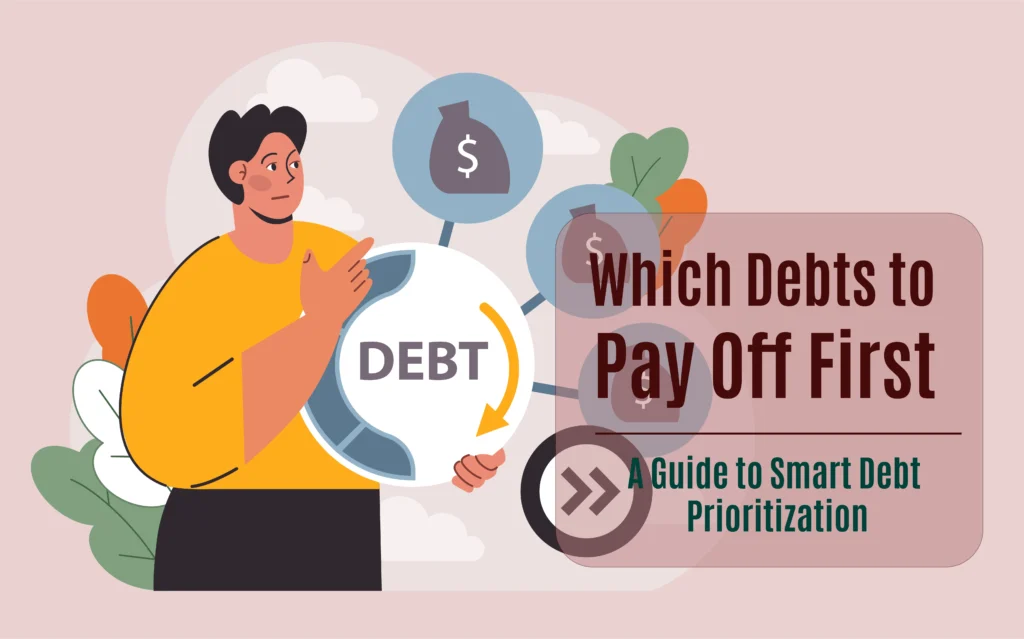Smart Tip for Holiday Budgeting: How to Spend Without Going Broke
The holiday season is a time for joy, giving, and celebration, but it can also be a financial strain if you’re not careful. With so many expenses piling up—from gifts to travel and festive meals—staying on top of your finances is more important than ever. If you’ve ever found yourself worrying about overspending during the holidays, you’re not alone. But here’s the good news: with a little strategic holiday budgeting, you can enjoy the season without draining your bank account. Let’s explore some smart tips that will help you make the most of your holiday cheer—without going broke.

Setting a Holiday Spending Budget
Now that you understand the various costs associated with the holidays, it’s time to set a budget. This will help you avoid overspending and keep your financial goals on track.
How to Calculate Your Holiday Budgeting
- Start with Your Monthly Budget: Look at your overall financial picture before the holidays begin. What are your fixed expenses (rent, utilities, savings goals, etc.), and what is your disposable income? Use this information to determine how much you can realistically allocate for holiday spending.
- Set a Spending Limit: Once you know how much you can afford, set a firm spending limit. Make sure this number covers everything from gifts and travel to food and decorations.
- Consider Your Financial Goals: Don’t forget about your long-term financial goals when setting your holiday budget. Make sure that holiday spending won’t derail your savings plan, emergency fund, or debt repayment strategy. If necessary, prioritize paying down debt or contributing to savings over splurging during the holidays.
Allocate for Each Category
After determining your total holiday budget, divide it into different spending categories:
- Gifts: Think about how many people you need to buy for, and decide how much you’ll spend on each person. It may help to rank recipients by priority. For instance, you might allocate more money for immediate family and less for extended relatives or friends.
- Food and Entertaining: If you’re hosting holiday gatherings, figure out how much you’ll need to spend on food, drinks, and decorations. Potlucks are a great way to reduce costs and still enjoy a festive meal.
- Travel: If you plan to travel for the holidays, make sure you budget for gas, airfare, hotel stays, or any other expenses related to your trip. You can also consider alternatives, such as staying with family instead of booking a hotel.
Use Last Year’s Data
Looking at your holiday spending from last year can be an effective way to gauge how much you’ll need to spend this year. If you have receipts or bank statements from the previous holiday season, go through them to get a sense of where your money went. Did you go over budget last year? Were there any unexpected expenses? By identifying patterns, you can plan better for this year.
Planning Ahead to Avoid Last-Minute Scrambles
One of the biggest culprits of overspending during the holidays is last-minute shopping. When you’re in a rush, it’s easy to panic-buy, overspend, or settle for more expensive options simply because you don’t have time to shop around.
Start Early
One of the best ways to avoid holiday overspending is by starting your shopping early. When you spread your purchases over several months, you can avoid the financial strain that comes from trying to buy everything at once.
Start by making a list of everyone you need to buy for and brainstorm gift ideas early in the season. As you find items that fit your budget, start purchasing them and cross them off your list. This not only helps reduce the stress of last-minute shopping but also allows you to take advantage of sales and discounts.
Make a Shopping List and Stick to It
A detailed shopping list is one of your best defenses against impulse buying. Before you hit the stores or start browsing online, make a list of the gifts, decorations, and food items you need. Be as specific as possible. For example, instead of writing “buy gift for Mom,” jot down exactly what you plan to buy, like “Mom—cashmere scarf, $50.”
Once your list is made, commit to sticking to it. If you see something you hadn’t planned for, take a moment to evaluate whether it fits within your budget and if it’s truly necessary.
Take Advantage of Holiday Deals
There are plenty of opportunities to score deals during the holiday season, but it’s important to approach them strategically. Black Friday and Cyber Monday are the most well-known sale events, but many stores offer discounts throughout the entire holiday season. Sign up for store newsletters or download apps that alert you to upcoming deals. However, avoid falling into the trap of buying something just because it’s on sale.
One way to maximize savings is to plan your purchases around these sales. For instance, if you know a certain item on your list is likely to go on sale on Black Friday, hold off on buying it until then. But remember—only buy what you need and what you’ve budgeted for.
Smart Spending Strategies for Holiday Shopping
Cash vs. Credit
Credit cards can be a double-edged sword during the holidays. While they offer convenience and rewards like cash back or points, they also come with the risk of high-interest debt if you don’t pay off the balance in full each month. To stay on track, consider using cash or a debit card for your holiday purchases. This method forces you to stick to your budget, as you can only spend what you have.
If you do decide to use credit, choose a card with a rewards program that aligns with your holiday spending. For instance, if you’ll be traveling, use a card that offers travel rewards or miles. Just make sure you have a plan to pay off the balance before interest kicks in.
Limit the Number of Gifts
The holidays are about quality, not quantity. Instead of feeling obligated to give everyone multiple gifts, focus on one thoughtful and meaningful present per person. This not only reduces the financial burden but also allows you to give gifts that are more personal and appreciated.
One popular strategy is to organize a Secret Santa or white elephant gift exchange within your family or group of friends. This way, each person buys just one gift, reducing the overall number of gifts and cutting down on costs.
DIY and Thoughtful Gifts
Not all gifts need to come from a store. Homemade gifts can be more personal and meaningful, often carrying more sentimental value than something store-bought. Here are some creative and cost-effective DIY gift ideas:
- Baked Goods: Homemade cookies, cakes, or bread make great gifts, especially when presented in festive packaging.
- Crafts: If you have a particular skill, like knitting, painting, or woodworking, consider making something unique for your loved ones.
- Photo Albums or Scrapbooks: Collecting memories and putting them together in a scrapbook or photo album can be a heartfelt and meaningful gift.
Using Gift Cards Wisely
Gift cards are a great way to stick to your budget because they set a predetermined spending limit. You can buy gift cards to your favorite stores or websites and use them for holiday shopping. This way, once the gift card balance is gone, you won’t be tempted to spend more.
Gift cards can also make great presents themselves, especially if you’re not sure what to buy someone. By giving a gift card, you allow the recipient to pick out something they truly want or need.
≫ Learn More: Tip to Budget for Travel: Saving for Your Next Adventure
Avoiding Holiday Debt Traps
Dangers of Holiday Credit Card Debt
Credit card debt is one of the biggest holiday financial traps. It’s easy to swipe your card and worry about the bill later, but high interest rates can turn a few gifts into months or even years of payments. To avoid this, make a rule to only charge what you can afford to pay off in full when the bill arrives.
If you do find yourself in a situation where you need to carry a balance, make a plan to pay it off as quickly as possible. Start by paying more than the minimum payment each month and prioritize high-interest debt over other financial obligations.
Using Credit Card Rewards Responsibly
If you use credit cards strategically, you can actually save money through rewards programs. Many credit cards offer cashback, points, or travel rewards that can be redeemed for holiday purchases or travel expenses. However, this only works if you pay off your balance in full each month. Otherwise, the interest charges will quickly outweigh any rewards you earn.
When using rewards cards, focus on maximizing the categories that give you the most benefit. For example, if your card offers 5% cashback on groceries during the holidays, use it for all your holiday meal purchases. Just be sure to keep track of your spending and pay off the balance immediately.
Personal Loans and Financing Offers
Some retailers offer financing options, such as “Buy Now, Pay Later” plans, to help you spread out the cost of large purchases. While these options can seem appealing, they often come with hidden fees or high-interest rates if you miss a payment or fail to pay off the balance in full.
Before opting for financing, read the fine print and make sure you fully understand the terms. If the interest rate is high or there are penalties for missing payments, it may be better to skip the financing offer and stick to a smaller, more manageable purchase.
Avoid Payday Loans at All Costs
Payday loans are another holiday debt trap to avoid. These short-term loans come with extremely high interest rates and fees, making them difficult to pay back. While they may seem like a quick solution to holiday cash flow problems, they often lead to a cycle of debt that’s hard to escape.
If you’re struggling to make ends meet during the holidays, consider other options like adjusting your holiday budget or finding temporary work, such as seasonal retail jobs, to boost your income.
Managing Family and Social Expectations
Communicating Your Budget to Family and Friends
The holidays can bring about a lot of social pressure to spend money on gifts, parties, and events. However, it’s important to remember that your financial well-being comes first. Don’t be afraid to communicate your budget to family and friends, and let them know if you need to scale back this year.
For example, if your family traditionally exchanges gifts, suggest alternatives like a Secret Santa or a gift exchange with a set spending limit. Most people will understand and appreciate your honesty, and you may find that they were feeling the same pressure to spend more than they could afford.
Celebrating on a Budget
You don’t need to spend a lot of money to create meaningful holiday memories. Here are some budget-friendly ways to celebrate:
- Host a Potluck: Instead of shouldering the cost of an entire holiday meal, invite friends and family to bring a dish. This not only reduces your expenses but also allows everyone to contribute.
- DIY Decorations: Skip the expensive store-bought decorations and get creative with DIY projects. You can make wreaths, ornaments, and centerpieces with materials you already have at home.
- Free or Low-Cost Activities: Look for free or low-cost holiday activities in your community, such as tree-lighting ceremonies, holiday markets, or light displays. These events can be just as festive and enjoyable as expensive outings.
Emphasizing Experiences Over Things
One of the best ways to reduce holiday expenses is by focusing on shared experiences rather than material gifts. Instead of buying lots of presents, consider giving the gift of an experience. For example, you could:
- Take your family to a holiday-themed event or show.
- Plan a day of holiday baking or crafts.
- Organize a game night or movie marathon with holiday classics.
Experiences often create lasting memories that far outweigh the temporary excitement of material gifts.
≫ Learn More: Common Budgeting Mistakes and How to Avoid Them
How to Save Money for Future Holidays
Creating a Year-Round Holiday Savings Fund
One of the best ways to avoid financial stress during the holidays is to start saving early. Set up a dedicated holiday savings account and contribute to it throughout the year. Even small contributions can add up over time, and by the time the holiday season rolls around, you’ll have a healthy fund to cover your expenses.
For example, if you set aside just $50 per month, you’ll have $600 saved by the end of the year. This can significantly reduce the financial burden of holiday shopping and festivities.
Automate Your Savings
Automating your savings is a simple and effective way to stay on track. Set up an automatic transfer from your checking account to your holiday savings account each month. This way, you don’t have to think about it, and the money will accumulate over time without any extra effort on your part.
Post-Holiday Sales for Next Year
The weeks following the holidays are some of the best times to shop for decorations, wrapping paper, and even gifts for next year. Many stores offer deep discounts on holiday items to clear out inventory, and you can score great deals on items you’ll need for the following year.
Stock up on essentials like holiday lights, ornaments, and gift wrap when they’re on sale, and store them away for next season. By planning ahead, you’ll not only save money but also reduce the stress of last-minute shopping next year.
Conclusion
The holidays are meant to be a time of joy and celebration, not financial stress. By setting a budget, planning ahead, and using smart spending strategies, you can enjoy the festive season without going broke. Remember, the holidays are about creating memories and spending time with loved ones, not about how much money you spend.
By following these tips, you’ll be able to start the new year on the right financial footing, with no lingering holiday debt or stress. Here’s to a joyful and financially stress-free holiday season!












